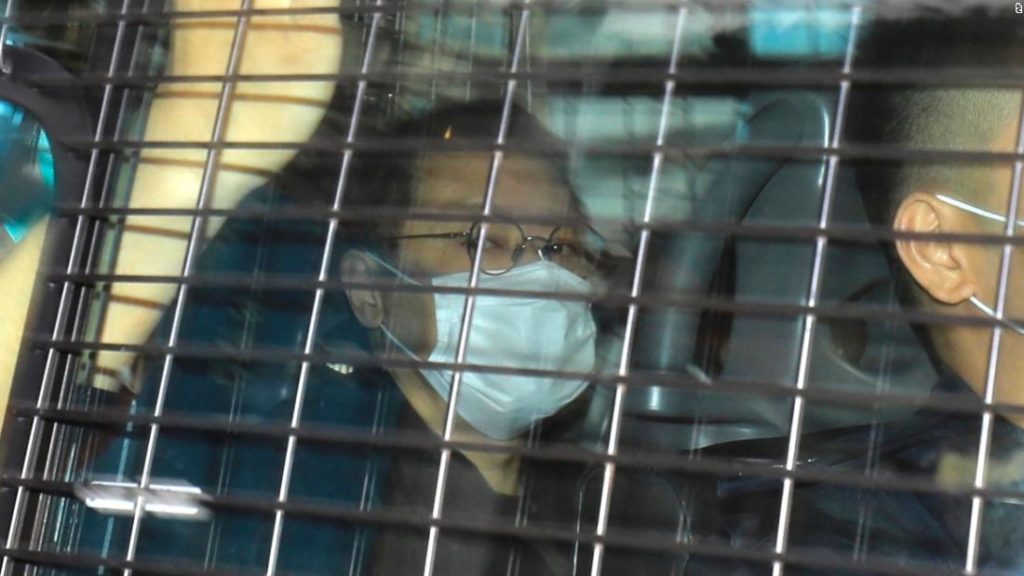The protest was the largest seen in the city for months, with those gathered chanting the banned slogan, “Liberate Hong Kong! Revolution of our time!” and carrying placards demanding the release of those rounded up under the sweeping legislation.
Prosecutors had argued in court that the defendants were involved in a “massive and well-organized scheme to subvert the Hong Kong government” by organizing and participating in an unofficial primary election last July. Such contests are a normal function in democracies around the world, during which political parties select the strongest candidates for an election.
Alan Leong, a lawyer and politician representing four of the defendants, said the charges filed on Sunday would be remembered as a “challenge on Hong Kong’s fair electoral system” and criticized prosecutors for bringing charges without sufficient evidence.
“It is not just the 47 defendants who are just facing charges here today, but also the Hong Kong judicial system and the spirit of rule of law,” Leong said.
The 39 men and eight women were aged between 23 and 64, and included prominent activist Joshua Wong and law professor Benny Tai. They appeared in court Monday after being asked to report to police the day prior. Under their previous bail agreements, they weren’t required to check in with police until early April.
Hundreds of demonstrators came out to support those being held, despite public health measures that ban gatherings of more than four people and the government’s increasing crackdown on political protest.
A large police presence outside the courthouse in the city’s West Kowloon district attempted to disperse the crowds, warning that those gathered could also be violating the national security law. Demonstrators peacefully left the area by the evening.
Inside the courthouse, all seats in the public gallery were filled, mostly by people dressed in all black in support for the pro-democracy movement. By the afternoon, police could be seen cordoning off sidewalks near the court to prevent more people from gathering.
The charges against the 47 activists mark a sweeping escalation in the application of the national security law, under which previously only a handful of people had been charged and taken to court.
Hong Kong authorities have accused the 47 of conspiring to use the primary to win a majority in the legislature and paralyze the government, potentially forcing the city’s leader to resign. That strategy that would be entirely legal — and not out of the ordinary — in parliamentary systems like the United Kingdom and Australia.
The national security law criminalizes secession, subversion, terrorism, and collusion with foreign powers, and carries with it a maximum sentence of life in prison. Cases under the legislation are handled by a dedicated branch of the Hong Kong police and judges assigned to hear national security cases.
Hong Kong Chief Executive Carrie Lam and others had previously promised the law would be limited in effect, and only target a small number of fringe activists.
Anyone who fails to take the oath — or is deemed to have done so in an insincere fashion — would be immediately disqualified from office and banned from running in elections for the next five years, Secretary for Constitutional and Mainland Affairs Erick Tsang said.
It came after Hong Kong’s sole delegate to China’s top legislative body said that only “staunch patriots” should be allowed to hold positions of authority in Hong Kong.
You may also like
-
Afghanistan: Civilian casualties hit record high amid US withdrawal, UN says
-
How Taiwan is trying to defend against a cyber ‘World War III’
-
Pandemic travel news this week: Quarantine escapes and airplane disguises
-
Why would anyone trust Brexit Britain again?
-
Black fungus: A second crisis is killing survivors of India’s worst Covid wave

